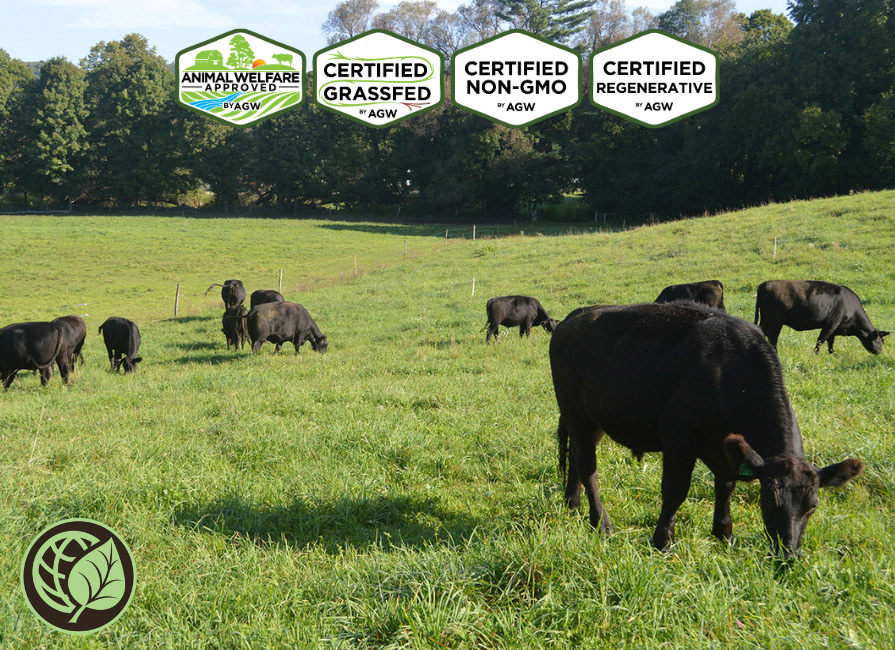One of the key attractions of our Certified Regenerative by AGW program is its practical…
Antibiotics in farming: has Tyson Foods shot itself in the foot?
 Tyson Foods’ recent agreement to settle a lawsuit for falsely advertising its “raised without antibiotics” chicken brand has received limited media coverage – no doubt to the relief of the company’s boardroom. And with an annual turnover of nearly $27 billion, they probably won’t sweat too much over the $5 million that the company must now shell out as compensation to unhappy customers.
Tyson Foods’ recent agreement to settle a lawsuit for falsely advertising its “raised without antibiotics” chicken brand has received limited media coverage – no doubt to the relief of the company’s boardroom. And with an annual turnover of nearly $27 billion, they probably won’t sweat too much over the $5 million that the company must now shell out as compensation to unhappy customers.
In falsely marketing its chicken meat as produced from birds “raised without antibiotics” while still feeding them antibiotics, Tyson Foods was shamelessly exploiting the growing public concern over the excessive use of antibiotics in industrial farming, particularly in the form of non-therapeutic growth promoters.
But while the intensive meat industry continues to vigorously oppose any attempts to reduce antibiotic use in farming, the irony is that Tyson Foods may well have inadvertently shot itself in the foot by publicly admitting that the overuse of certain antibiotics in industrial farming really is a threat to human health.
Antibiotic resistant bacteria
The practice of feeding farm animals low doses of antibiotics in food and water began back in the 1950s, and has since become standard practice. Nowadays, virtually all intensively farmed animals will receive low levels of antibiotics in their feed, water or by injection throughout their lives as so called “growth promoters” to help maximize production and minimize costs. This approach allows today’s intensive poultry farmers, for example, to keep tens of thousands of chickens indoors in an unnatural state of false health, whereby the low-level antibiotics suppress key diseases which would otherwise spread like wildfire in such close-confined and all too often unsanitary environments. Sound too good to be true? Well, it is.
Mounting scientific evidence now suggests that Concentrated Animal Feeding Operations (CAFOs) are a breeding ground for diseases that pose a real threat to human health. Indeed, the routine low-level, non-therapeutic use of antibiotics as growth promoters to suppress diseases – rather than as a therapeutic treatment for outright cure – is leading to the development and proliferation of antibiotic-resistant bacteria in the animal and human population.
Key antibiotic-resistant bacteria are now starting to hit humans hard, with various emerging resistant strains of E. coli, salmonella and MRSA, to name just a few. The US Center for Disease Dynamics, Economics & Policy claims that MRSA (methicillin-resistant Staphylococcus aureus) infections are up more than 50% since 1987, while some estimate that antibiotic resistant infections are increasing healthcare costs by $4-5 billion a year. It is clear that antibiotic resistant disease represents a ticking time bomb for human health – and people are finally waking up to this fact.
False marketing
In a rather cynical attempt to capitalize on this growing public concern, in 2007, Tyson Foods began marketing its chicken as “raised without antibiotics” after first gaining approval from the USDA to do so. But the problem was that Tyson Foods wasn’t telling the USDA the whole story; after finding out that the company was still including ionophores in its poultry feed, the USDA quickly revoked its decision.
Classified by the USDA as antibiotics, ionophores are a group of animal medicines commonly added to industrial poultry feed to help prevent coccidiosis, an intestinal parasite. Ionophores are just one of several groups of antibiotics that are used by the major industrial farming businesses; the problem is that many are also vital for treating disease in humans.
Initially, Tyson’s legal team tried to argue that ionophores weren’t officially classified as antibiotics, but the USDA quickly reaffirmed that they were and that Tyson must therefore stop selling its chicken as “raised without antibiotics.”
Tyson approached the USDA again, this time arguing that because ionophores were not actually used in human medicine, their use in farming could not lead to the possible emergence of diseases with antibiotic resistance to important human drugs. On this basis, Tyson said that they were willing to compromise and would modify their labels to state “chicken raised without antibiotics that impact antibiotic resistance in humans.” But it never got that far; once Tyson’s key competitors got wind of the issue, they filed a class-action lawsuit alleging that Tyson Foods’ labeling ideas constituted false advertising. In June 2008, Tyson Foods voluntarily withdrew the label entirely, and finally settled the case in early 2010.
Tyson backfires…
But while many journalists will simply dismiss this whole episode as yet another damning indictment of our troubled food and farming systems, this story might not end there: for Tyson Foods has inadvertently shot itself – and the industrial food lobby – in the foot.
By modifying its label from “chicken raised without antibiotics” to “chicken raised without antibiotics that impact antibiotic resistance in humans,” Tyson Foods is implicitly admitting that the non-ionophore antibiotics used in industrial farming “impact antibiotic resistance in humans.” It’s there in black and white for us all to see (http://www.tyson.com/Corporate/PressRoom/ViewArticle.aspx?id=2955).
The Union of Concerned Scientists estimates that about 70% of all antibiotics used in the United States are given to farm animals, so it’s understandable that you might think that this practice is essential for the production of our meat. But the US farming industry is already four years behind the European Union, 14 years behind Denmark and 24 years behind Sweden in banning the non-therapeutic use of medically important antibiotics in farm animal production. All of these countries have taken positive action to protect the long-term viability of their citizens and the antibiotics that protect them against disease. And, unless I’ve missed something, I am pretty sure that all of these countries still have a thriving livestock farming industry. Indeed, early evidence suggests that the antibiotic bans are already leading to a lower prevalence of antimicrobial resistance in animal bacterial populations – and increased livestock growth rates. It seems that managing animals in order to make sure they don’t get ill in the first place leads to more productive animals. Common sense, don’t you think?
Industry opposition
So why does the US industrial farming industry – including the American Farm Bureau, American Meat Institute and the National Pork Producers Council – still have such an issue with recent proposals which seek only to reduce the (mis)use of antibiotics in agriculture and preserve these tools which are so vital for the protection of human health?
Well, the sad truth is that intensive farming operations have knowingly profited from the misuse of medically important antibiotics for years, at the expense of human health and animal welfare. How else can you explain their dogged opposition to the introduction of simple safeguards that would help to prevent the emergence of antibiotic resistant strains of life-threatening diseases, such as E. coli and MRSA?
In 2008, after a lengthy independent investigation to assess the farm animal industry’s impact on the public’s health, the environment, farm communities and animal welfare, the Pew Commission on Industrial Farm Animal Production called for stricter regulation of antibiotic use in large-scale animal operations, stating that “the present system of producing food animals in the United States is not sustainable and presents an unacceptable level of risk to public health.” Without any real research its calls were refuted by the industrial farming lobby, which claimed that limiting antibiotic use would threaten animal health and welfare and increase the risk of food-borne disease.
PAMTA – a step in the right direction
Similarly, the recent proposal to introduce the Preservation of Antibiotics for Medical Treatment Act (PAMTA) is at risk of being derailed by the intensive farming lobby – despite the fact that the American Medical Association, the American Academy of Pediatrics, the American Academy of Family Physicians, the National Association of County and City Health Departments and hundreds of other health, consumer, environmental, agricultural, and humane organizations all support the legislation.
PAMTA would still allow therapeutic use of antibiotics to treat sick animals, but would prohibit the non-therapeutic feeding of medically important antibiotics to livestock, as well as require any antibiotics that are destined for non-therapeutic livestock use to undergo safety tests to ensure that they will not harm human health due to antibiotic resistance. Surely this is just plain commonsense?
Yet the industrial farming lobby – and even the usually very enlightened American Veterinary Medical Association – is forcefully opposing PAMTA, claiming that animal health and welfare would suffer and food-borne diseases would increase. Again, as far as I am aware, I’m not hearing regular reports of mass public food poisoning incidents from countries which have banned non-therapeutic use of antibiotics.
We’re already doing it – naturally…
The truth is that farmers don’t need to use non-therapeutic antibiotic treatments in order to keep their animals healthy and productive. Just like farmers in other countries, thousands of farmers across the USA – including Animal Welfare Approved farmers – already rear their livestock without ongoing reliance on non-therapeutic antibiotics.
AWA farmers maintain herd health through vaccination, pasture management, exceptional hygiene, and the reduction of stress which weakens animal immune systems. Of course, if an animal is sick and needs medical treatment AWA standards allow the use of antibiotics, where appropriate. It’s just plain old reasonable farming; nothing more, nothing less.
Despite its continued opposition to PAMTA and the Pew Commission, Tyson Foods has now openly admitted that some antibiotics used in agriculture risk creating “antibiotic resistance in humans.” We also know from experience here and in Europe that we can farm successfully without reliance on these growth promoters. We cannot afford to allow industrial farming to carry on misusing antibiotics for profit, at the expense of public health and animal welfare. It is time that we stop using antibiotics to prop up unsustainable and poor welfare farming systems, and instead do everything we can to ensure that these remarkable medicinal tools remain as effective as possible for treating killer human diseases. The alternative is simply unthinkable.


